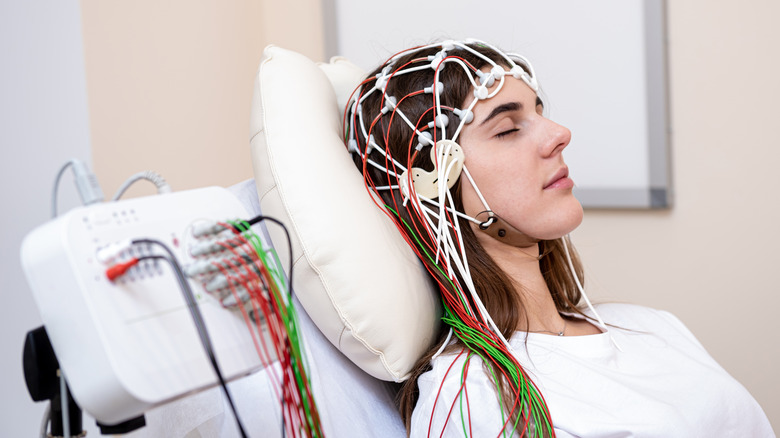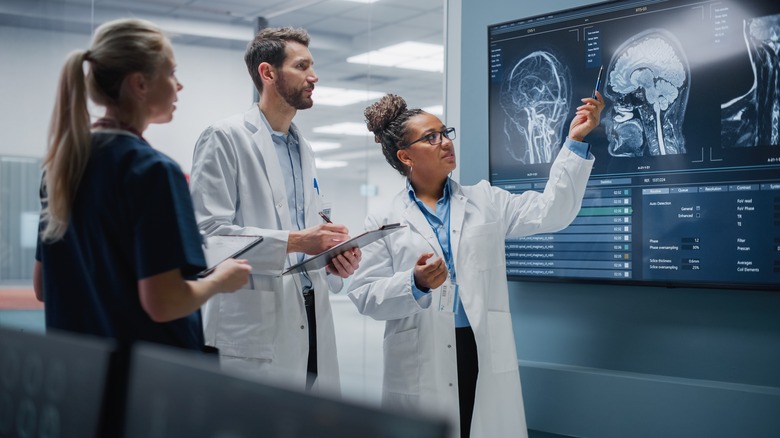The Unexpected Reason Your Body Throbs When You're In Pain
You woke up with a painful tooth. By lunch, it feels like a steady drilling in the side of your face. Like many, you might assume that the pounding pain you feel coincides with the beating of your heart, but it might not actually be the case. Instead, the rhythm of throbbing pain could be linked to your brain waves.
The theory that throbbing pain is due to arterial pulsations goes back centuries, as explained by neurologist Dr. Andrew Ahn (via Medical News Today). "Aristotle linked throbbing pain to heart rhythm 2,300 years ago," said Dr. Ahn. "It took two millennia to discover that his presumption was wrong."
A 2012 study in The Journal of Neuroscience examined the rhythm of throbbing pain and pulse rate, finding no synchrony between the two in some patients. Researchers started to look at other mechanisms that cause the pulsing of pain, and their findings led them to take a closer look at the brain.
Throbbing pain linked to brain waves
Given that only 29 of the 48 participants of the 2012 study possibly had a correlation between arterial pulsations and the throbbing of the pain, it begged the question of where the pain comes from. Per research published in Pain, experts found a link between alpha waves in the brain and throbbing pain.
While the waves of the brain haven't been entirely dissected by science, it's known that alpha waves are the waves produced during a wakeful rest (via Healthline). Dr. Ahn likened them to a radio, and added that they could potentially "act as a carrier signal that allows different parts of the brain to communicate with itself" (per Medical News Today).
Additionally, 2020 research published in Frontiers of Neuroscience found that enhancing the activity of the alpha waves using visual stimulation worked as a treatment for chronic pain sufferers. While more research is needed, understanding and using alpha waves for pain management could change how pain is handled. Some present-day pain medications work by dilating the arteries, as they are based on the premise that a person's heartbeat is linked to their bodies throbbing when in pain.
The importance of understanding throbbing pain
Understanding and managing pain is as vital to medicine as understanding where diseases come from and how to cure them. Pain and suffering are a dedicated area of medicine, since pain can severely impact the quality of a person's life. Finding new treatments can be life-changing for chronic pain sufferers who have exhausted current medicinal avenues.
However, certain pain treatment methods — like treatments using opioids, for instance — can also lead to serious issues (per Frontiers in Pain Research). Thus, discovering additional treatments beyond opioids is vital to finding methods that could lead to fewer side effects. For instance, alpha-wave stimulation with the right frequency and dosage could lead to treatment for throbbing pain with very few side effects. This new method can be used to alleviate the suffering of patients who experience by throbbing headaches and migraines, along with those who have nociceptive pain (from tissue damage).



